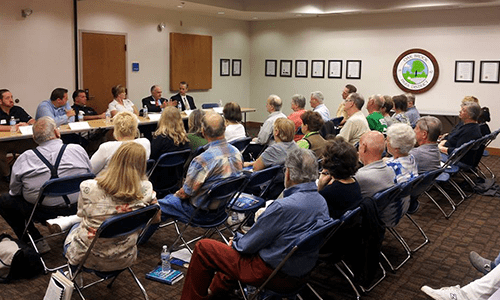Risk is a popular strategic board game that was initially invented in the 1950s by a French film director, then later purchased and produced by Parker Brothers with a few modifications. The board game shows a map of the Earth, divided into 6 continents and even further into 42 territories. The object of the game is to occupy every territory through the use of armies that capture other players’ territories, thereby eliminating the other players. The “risk” arises as victories and defeats, and the eventual winner of the game, is determined through simple dice rolls. Though the rules of Risk neither condone nor prohibit alliances, it has been acknowledged that alliances add a powerful interactive element to the game, and can be dealmakers or dealbreakers depending on what side of the alliance you find yourself on. The game can be a metaphor for life, as sometimes the choices we make involve some risk and can sometimes have unintended unfortunate results.
We all experience risk in our everyday lives. Things such as making our morning coffee in our own kitchen, driving a car or even shopping at our local grocery store are all actions that can put us at risk. We might forget to turn off the coffee pot one morning which causes a fire in our home, we might cause a fender bender while driving, or we might slip and fall on a wet spot on the floor in front of the meat counter in our favorite grocery store. These are accidents that we don’t expect to happen – but are risks we take every day.
In the bigger picture, if you are reading this article, chances are you are involved in your local community association or are a service provider to associations. As insurance agents, it is our job to try and educate our clients on ways to reduce risk in their own community.
Being aware of situations around us is one of the best ways to reduce risk which might lead to an accident or a scenario that might cause damage to others. When you leave your house in the morning, do you double check to make sure that all appliances are turned off? Leaving a coffee pot on or forgetting to turn off the iron can lead to a fire. When you are walking through the grocery store or walking around your community are you aware of your surroundings? Not paying attention to where you are walking can lead to a slip and fall situation.
If you are a board member of your association it is important to be alert and attentive when driving or walking through your association property; make sure to assess your territory. Are any street lights burnt out which cause a dark spot on the street? Are there any pot holes in your streets that need to be reported to your municipality, or does action need to be taken by the board to get them repaired? During a landscape walk did you notice any ruts or holes in the ground that need to be addressed? How about uneven sidewalks which can lead to a slip and fall? Evaluating risk during your everyday life is important – especially if you are responsible for the wellbeing of others.
The very first thing potential insurance agents are taught as they travel down the career path to becoming Risk Managers is the theory of Transfer of Risk. The International Risk Management Institute, Inc. (IRMI) defines Risk Transfer as a “risk management technique whereby risk of loss is transferred to another party through a contract (such as a hold harmless clause) or a professional risk bearer (such as an insurance company)”. This means if there is a fire in your building you want your insurance company to give you dollars to repair or replace what was damaged. If someone slips and falls and is injured, you want your insurance company fund to pay their medical bills.
Another way to reduce risk is to buy insurance to protect ourselves and others that we come into contact with. Buying insurance can be a daunting task especially since your insurance program is often the most expensive line item in your budget. Make sure you form an alliance with a capable expert. Your insurance agent should be someone who has experience in working with community associations. The CAI (Community Association Institute) and ACTHA (Association of Condominium, Townhome and Homeowners Associations) membership directories can give you a good place to start when you are looking for an insurance agent or an insurance consultant with whom to work. Remember, there is nothing wrong with interviewing an insurance agent before you allow them to handle your association’s insurance program. Would you hire a property manager, a landscaper or attorney without interviewing them first?
You also want to make sure that the insurance companies that insure your property are strong and solvent. You want to make sure that they have enough money in their coffers to pay for any claims that might arise. Go to www.ambest.com to check out ratings for insurance companies. A.M. Best is the “go-to” company for credit ratings and financial data for the insurance industry. Knowing that your insurance company is strong and your insurance agent is experienced and reputable can give you great confidence in your alliance.
Another safeguard against risk is to hire an insurance consultant to act as a second pair of eyes to review your insurance program. No insurance agent should be afraid to cooperate with an insurance consultant that you hire to review your insurance program. If they are, then that might be your first red flag that you have selected the wrong insurance agent!
When reviewing your insurance program you want to confirm numerous things. If you are a condominium, does your insurance program meet or exceed the requirements in the Illinois Condominium Property Act? When was the last time your Association had an insurance appraisal completed to confirm that your building limit is correct? Is your deductible appropriate for your exposure? When was the last time you went out to bid on your insurance? Going out to bid every 3-4 years is recommended.
You also want to make sure that your Fidelity coverage (which protects your association’s funds) meets state and Freddie Mac guidelines, which require that the Fidelity coverage must be in the full amount of both your association’s operating and reserve funds in the custody of the association or the management company.
Does your association have a Disaster Plan in place? If you are an apartment style association – when was the last time your association had a fire drill? Does your association include a copy of your Disaster Plan in the welcoming packet for new owners and renters?
Speaking of renters – does your association recommend to owners that rent out their unit that all renters carry an HO-4 (renters insurance) policy? Do you also require that all homeowners carry an HO-6 (condominium owners insurance) policy? Ascertaining that your residents maintain appropriate insurance coverage can reduce the risk of an association having to foot the bill for any disasters stemming from a resident’s unit.
If you are a unit owner do you obtain a copy of your association’s Certificate of Insurance every year? Keep in mind that if you have a mortgage on your unit, chances are your mortgage company obtains this document on your behalf every year. If you do not have a mortgage, you have the right to obtain this document which gives you information about your association’s insurance program.
Controlling risk in your everyday life is paramount in protecting not only yourself but the community you live in. Whether you are a homeowner, board member or service provider you should have a good strategy in place to control risk. You should form an alliance with an insurance agent, insurance company and insurance consultant you can trust to help you control your risk. Finally, draft a plan of action in the event of disaster so that you will prepared if such an event ever transpires. Evaluating and managing risk will ultimately result in reducing situations that put you at risk and put the association at risk of loss. In that game, you’re both winners!
Karyl Dicker Foray, CIRMS, CRIS
Debbie Smith, CISR








